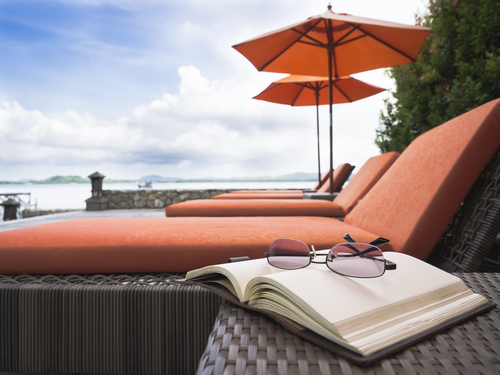Weather, the seasons and the environment are major factors that influence the development of conditions like asthma and allergies. In order to reduce the burden of these conditions and promote safer, more enjoyable holidays during summertime, the nonprofit patient education and advocacy organization Allergy & Asthma Network has released a series of tips and recommendations for both patients and caregivers.
Before leaving on a vacation, the network recommends a checkup visit to a primary care physician or board-certified allergist to discuss travel plans and ask about possible prevention methods. “Asthma flares and allergic reactions can occur without warning, and managing these conditions during travel can add stress to a time meant for relaxation,” explained the president and CEO of Allergy & Asthma Network, Tonya Winders.
“If your asthma and allergies are managed well at home, apply the same approach on vacation. Realistic and practical planning, such as packing extra medication or calling restaurants to find out if they accommodate food allergies, can help prepare you for potential medical emergencies and ease anxiety,” continued Winders about the recommendations, which are particularly focused on preventing disease exacerbation.
The organization also emphasizes the importance of packing medical equipment that may be needed, including a nebulizer, a peak flow meter, and other medication. Healthcare documents are also important to bring when traveling in case anything happens, including an action plan, health insurance information, and doctor’s contact information. It may also help to do some research prior to traveling about hospitals and pharmacies at the holiday destination.
“If you or your child have food allergies, plan your travel meals and snacks, and pack extra food in case of delays,” added Amanda Painter, who is a volunteer with The Network’s Anaphylaxis Community Experts (ACE) program in Maryville, Tennessee and South Chapter Coordinator for the Food Allergy Community of East Tennessee. “On car trips, packing a picnic lunch provides the added benefit of giving kids a chance to run around and release energy. We also try to stay at hotels with a kitchen and a refrigerator to store safe snacks and meals.”
The travel tips provided by the network on its website, which were developed in collaboration with the company PURE Solutions, are divided into Planes and Trains, Automobiles, and Lodging. In the first group, the organization recommends that patients ask for special accommodations for food allergies both when making the reservation and when boarding. Patients should also ask directly for an allergen-free meal or bring one.
Tips about traveling in planes or trains also include cleaning the seat, tray table and arm rest with a sanitary wipe, keeping emergency medication together and requesting to sit as far away as possible from passengers who travel with pets. Drinking plenty of water may help avoid asthma or allergy symptoms aggravation due to the dry air in air planes.
When traveling by car, the Allergy & Asthma Network notes the importance of cleaning the vehicle before starting the trip, while traveling in the early morning or late evening can benefit patients due to better air quality and less traffic. Regulating the air conditioning for the recycle mode may also help.
Regarding lodging, the network recommends patients to request allergy-friendly rooms, air purifiers, mattress and pillow encasings in the hotels and to check about the cleaning products. Trying to choose a smoke-free and pet-free hotel may also help avoid flare-ups, as well as avoiding rooms in the first floor, which is the one most exposed to car fumes, or near the pool due to the harsh chemicals used. The organization also recommends to not hesitate to request changing rooms if there is dust, pet hair, mold or other allergens clearly present.

